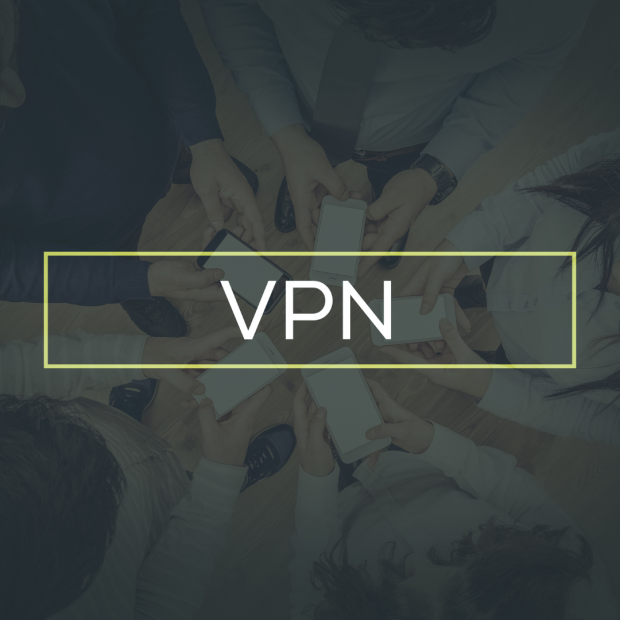Virtual Private Networks (VPNs) can be an effective and cost-effective way to maintain security for your company’s systems. Have you ever found yourself wondering how the VPN works, why you should use a VPN, or what are the different types of VPNs?
VPNs offer a comprehensive shield by encrypting entire internet connections, thus fortifying communication channels against potential cyber threats. Moreover, they furnish employees with secure remote access to corporate networks, fostering productivity without compromising confidentiality. However, when considering specific geographical requirements, such as accessing region-restricted content like streaming services or websites, proxy servers, like a localized Canada proxy server (or one elsewhere), can offer a better solution. Ultimately, it’s important to make a choice after understanding the pros and cons of both.
That said, this article delves into the benefits of VPNs in business, including how they protect data and maintain security while offering increased speed and productivity.
What is a Virtual Private Network?
A Virtual Private Network (VPN) is a technology that creates a secure, private connection over the internet between your computer and a remote server. This is useful for protecting your privacy and security when you’re online.
When you use a VPN, all of your network traffic travels through this secure connection. This means that the government, your employer, or anyone else monitoring your online activity would not be able to see what you’re browsing, emailing, or downloading.
VPNs are quite useful for business users. By connecting to a VPN server in another country, you can bypass government censorship and restrictions. You can also hide your real IP address from spyware and other hacking attempts.
This is especially crucial for those businesses that operate on, process and store big data. Modern advancements in technology have also enabled hackers and fraudsters to penetrate into systems and steal data.
Online security is paramount, which is why businesses are better off using a VPN to their advantage. Apart from that, businesses should also find out what is ato, and how it can correlate with hackers’ ability to get their hands on data due to lack of security.
Furthermore, due to the ease and convenience of mobile applications and their ability to improve productivity, maybe corporate companies and businesses tend to overlook potential security risks associated with these tools. However, incorporating robust security measures, such as encryption protocols provided by a VPN, and taking advantage of tech solutions like Mobile Threat Defense which can prevent data theft or any other cyber-threats is advisable.
Since account takeovers and data theft are on the rise, it is all the more important for you to check out our top picks for the best VPNs for business on the market today.
Why Should Your Business Take Advantage of a VPN?
Virtual Private Networks (VPNs) are a great way to keep your business safe and secure online. Here are five reasons why you should consider using a VPN for your business:
1. Privacy and Security
A VPN secures your online traffic and protects your privacy. It prevents others from tracking your online activity, stealing your data, or spoofing your identity.
2. Performance and Reliability
A VPN can improve the performance of your network and ensure reliable communications. By routing all of your traffic through a VPN server, you can avoid latency and packet losses, which can slow down your website or application response time.
3. Cross-platform Compatibility
A VPN is compatible with a wide range of platforms, including Windows, Mac, iOS, Android, and more. This makes it easy to connect to the VPN from anywhere in the world.
4. Cost Savings
VPNs are affordable and can save you money on bandwidth costs and security measures compared to other security solutions like firewalls. Plus, because a VPN encrypts all of your data, you won’t need to worry about data breaches compromising your confidential information.
5. Compliance with Laws and Regulations
Many countries have laws that require businesses to use certain security measures, such as firewalls and VPNs. By using a VPN, your business can comply with these laws and protect its data from unauthorized access.
Benefits of Using a VPN
A virtual private network, or VPN, is a technology that allows users to create a secure connection over the internet. This is important for business owners who need to keep their data safe and private. Here are some benefits of using a VPN:
1. Protect Your Data
A VPN protects your data by encrypting it before sending it over the internet. This means that not even your computer can access your information.
2. Keep Your Identity Secured
A VPN also keeps your identity secure by hiding your IP address. This makes it difficult for hackers to track your online activity.
3. Stay Anonymous While Online
A VPN can also help you stay anonymous while online. This is especially useful when you want to avoid being tracked while you are shopping or browsing the internet.
4. Keep Your Internet Traffic Secure
When you use a VPN, your internet traffic is protected from spyware and other malware. This prevents unauthorized people from viewing your online activity or stealing your information.
5. Improve Your Online Privacy
When you use a VPN, you’re safeguarding your privacy from companies that track your online activities for marketing purposes. Additionally, you can enhance your privacy and security by using some of the best residential proxies in conjunction with a VPN. This combination allows you to scrape data while maintaining protection.
How to Choose the Best VPN for Your Business
Virtual Private Networks are a great way to keep your business secure and private. Here’s how to choose the best VPN for your business:
- Look at the types of encryption that the VPN offers. Some VPNs offer strong encryption, while others may only offer basic security. Make sure that the VPN you choose offers the level of encryption that is necessary for your business.
- Consider the number of servers that the VPN has in different locations. A good VPN will have a large number of servers in different locations to provide better global coverage.
- Look at the pricing and features of the VPN. Some VPNs offer a lower price point, while others offer more features for a higher price. Make sure that the features that are important to your business are included in the price you are paying for the VPN.
- Consider how easy it is to use the VPN and how user-friendly the user interface is. Many times, easier-to-use products are also more affordable.
- Look at customer reviews online before making a purchase decision. Reading customer reviews can help you make an informed decision about which VPN is right for your business
needs.
Tips for Using a VPN
Virtual private networks (VPNs) can provide security and privacy for your business. Here are five tips for using a VPN to boost your business security:
- Use a VPN when accessing sensitive data. A VPN can encrypt your traffic and protect your data from being snooped on by unauthorized users.
- Use a VPN when connecting to public Wi-Fi networks. By using a VPN, you can encrypt your traffic and prevent hackers from tracking your online activities.
- Use a VPN when connecting to corporate networks. By using a VPN, you can mask your IP address and protect your data from being compromised by third-party networks.
- Use a VPN when traveling abroad. By using a VPN while traveling, you can keep your personal information safe and secure and avoid potential cybercrimes.
- Use a VPN when working from home. By using a VPN, you can maintain peace of mind while working from home by encrypting your traffic and protecting your privacy.
In general, using a VPN can help protect your business from a variety of threats and vulnerabilities. By following these tips, you can easily maximize the security and privacy benefits of using a VPN in your business.


